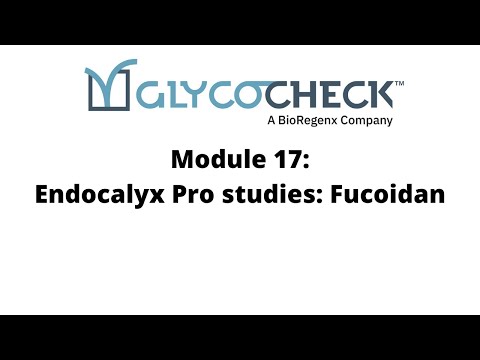Crude fucoidan content in two North Atlantic kelp species, Saccharina latissima and Laminaria digitata—seasonal variation and impact of environmental factors
https://www.ncbi.nlm.nih.gov/pmc/articles/PMC5705760/
Emerging Therapeutic Potential of SIRT6 Modulators
https://pubs.acs.org/doi/10.1021/acs.jmedchem.1c00601
coldwater brown algae has the most.
Some examples: Fucus distichus - Wikipedia
Laminaria digitata, Ascophyllum nodosum and Fucus vesiculosus. Fucoidan is a negatively charged and highly hygroscopic polysaccharide [9]. A high content of fucoidan is mainly found in the leaves of L. digitata, A. nodosum, Macrocystis pyrifera and F. vesiculosus
Another naturally occurring molecule showing SIRT6 activation is fucoidan (4), a heterogeneous sulfated polysaccharide present in brown algae. Its backbone consists of repeating (1 → 3) or (1 → 3) and (1 → 4) linked α-l-fucopyranose residues, in which some hydroxyl groups form sulfated esters (Figure Figure55, lower panel).123 The oversulfated fucoidan subtype extracted from Fucus vesiculosus displayed a 355-fold increase of SIRT6 activity at a 100 μg/mL concentration. In addition, when tested against other SIRTs (SIRT1/2/3), it did not display significant changes in activity, suggesting a specific action toward SIRT6. 4 was also able to activate SIRT6 acetylation toward H3K9 in vitro. According to the authors of the study, sulfate esters may play a central role in SIRT6–4 interaction and hence SIRT6 activation.123 However, the heterogeneity of the mixture, the polymeric nature of the compound, and the absence of kinetic data makes it difficult to compare this macromolecule to small molecules and to devise structure–activity relationships.
Fucoidan
Fucoidan is a polysaccharide which is naturally found in seaweeds and brown algae [88]. It has been reported to possess antioxidant, anticancer, anti-inflammatory, antidiabetic, and immunomodulatory effects [88]. Fucoidans extracted from the Sargassum filipendula and Laminaria japonica has been shown to exhibit antioxidant activity greater than vitamin C [102,103,104]. A recent report mentioned that its antioxidant activity is attributed to higher scavenging of nitric oxide than the most widely used synthetic antioxidants, including butylated hydroxyanisole (BHA) and butylated hydroxytoluene (BHT) [88]. It was identified and isolated from Fucus distichus fungus and was investigated to determine its SIRT6 modulation activity and the results depicted a considerable increase in deacetylation activity of SIRT6 [58]. Researchers have reported that fucoidan showed SIRT6 specific action since it strongly enhanced SIRT6 deacetylation activity as compared with its SIRT1-SIRT3 isoforms deacetaylation activity. Furthermore, fucoidan-riched five microalgal extracts obtained from Fucus distichus**, Fucus vesiculous, Cytoseira tamariscofolia, Cytoseira nodacaulis, and Alaria esculenta showed significant amplification of SIRT6 activity [58]. Most importantly, it exhibited dose-dependent SIRT6 stimulating activity [58]. Fucoidan induced apoptosis in HepG2 liver cancer cells through the upregulation of p53 and p14, as well as the stimulation of caspases activity. It is noteworthy to mention that overexpression of SIRT6 is associated with the induction of apoptosis in cancer cells. Furthermore, gluconeogenesis was inhibited by fucoidan through the stimulation of SIRT6 by p53, which in turn led to an enhanced level of FoxO1 [89]. It has also been reported that fucoidan provides antidiabetic action by inhibiting α-amylase and α-glucosidase. Moreover, the antidiabetic property of fucoidan is attributed to activate the PI3K/PKB pathway, which regulates insulin production and stimulates GLUT4 translocation [91]. Implications of fucoidan have also been identified in healing inflammation via inhibition of NO production, downregulation of iNOS, COX-2, IL-1 β, TNF-α, NF- κB expression, and regulation of ERK, JNK, MAPK, and Akt pathways [88,90].
Kombu
Algae
Saccharina japonica is a marine species of the Phaeophyceae class, a type of kelp or seaweed, which is extensively cultivated on ropes between the seas of China, Japan and Korea. It has the common name sweet kelp. It is widely eaten in East Asia. Wikipedia
Horsetail Kelp (Laminaria digitata) | Gulf Of Maine, Inc. => this has the highest


